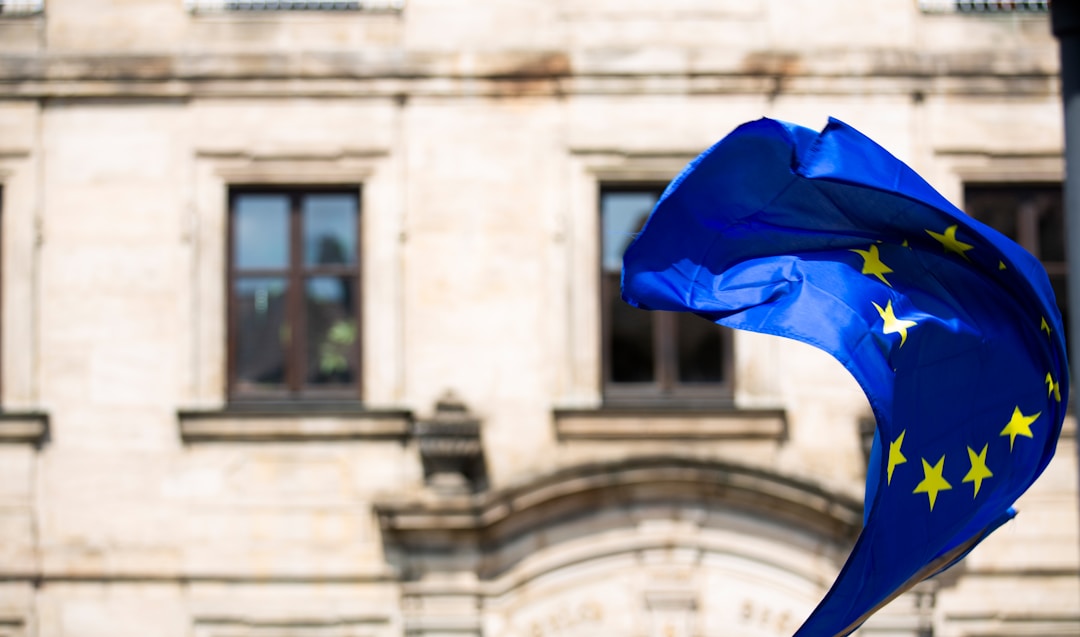Last December, the European Union took a giant leap towards corporate responsibility with a provisional agreement on the long-awaited Corporate Sustainability Due Diligence Directive (CSDDD) by the European Parliament and the Council.
While the name might sound like bureaucratic jargon, its implications are profound, especially for conscientious consumers like you and me.
Indeed, it's not just about legislation, it's about transparency. Reaching beyond multinational giants to even the smallest companies, the CSDDD hold corporations accountable and returns power to the consumer, transforming them from passive buyers to active contributors in shaping a sustainable world.
As glimpses of the final text start to appear, we understand it will be a game-changer in corporate sustainability and consumer decision-making.
The origin of the CSDDD: a turning point with the Rana Plaza tragedy
Picture this: It's 2013, and Rana Plaza, a garment factory in Bangladesh, collapses, claiming the lives of over a thousand workers. The building hosted banks, apartments, shops as well as clothing factories supplying brands like Benetton, Mango, Primark and Walmart. Shops and banks immediately closed after the discovery of cracks in the building structure and asked their employees not to come back until safety was restored. The clothing factories’ owners however ignored the warning and ordered their workers to return to work the following day. Moreover, managers threatened to withhold a month’s pay from workers who refuse to come to work. The building collapsed the next morning, claiming the lives of 1,100 workers, the majority of which were women.
Fast-fashion brands were blamed as indirectly responsible for the disaster because of the pressure they exert on their suppliers to complete orders on time and the short production deadlines preferred by buyers due to quick changes in design. Another factor identified as having led to this disaster was the lack of collectively organised trade unions. While these structures could have enabled workers to resist the pressure of management, they also meant increased workforce costs thus seen as endangering the competitiveness of the Bangladesh garment industry. This event, the deadliest structural failure accident in modern human history, spotlighted the dire consequences of unregulated corporate practices. More than a structural failure, it exposed the fragility of global supply chains and the lack of oversight and liability on the part of corporations.
This tragedy served as a wake-up call, leading to the birth of the CSDDD. The proposal of the EU Commission in February 2022 emerged as a response to the pressing need for increased transparency and accountability in corporate practices, ushering in an era where corporations are accountable for the impact of their operations, not just locally but throughout their entire supply chain.
Understanding the CSDDD: a shift towards responsibility
Let's demystify the CSDDD. At its core, it's about putting human rights and environmental considerations in companies’ operations and corporate governance. Applying to European companies with over 500 employees and non-EU companies with a significant presence in the EU, the directive wants to ensure that businesses address adverse impacts of their actions, including in their value chains inside and outside Europe.
The game-changer? Buying companies are now held liable for due diligence in their supply chains. No more passing the buck with excuses like "it's not us, it's our supplier”. Suppliers are of course still responsible for their own adverse environmental or social impacts but buying companies will also have civil liability if those are due to direct action or negligence from their side. Non-compliance can result in hefty fines of up to 5% of the company’s global turnover.
This shift towards responsibility is monumental. Companies can no longer claim ignorance or distance themselves from the practices of their suppliers. The directive recognises that businesses have a duty not only to their shareholders but to society as a whole. It acknowledges the interconnectedness of the global economy and the far-reaching consequences of corporate actions.
The legislation mandates an obligation of process rather than an obligation of result. This nuanced approach recognises the inherent challenges faced by companies in fully understanding and controlling every facet of their sprawling supply chains. Even with the best of intentions, it's an impractical expectation for a company to be aware of every nuance in the far-reaching corners of their operational network.
As a directive, the CSDDD provides a roadmap for change. Member states have a grace period of two years to implement the directive into their local legislation. However, this doesn't mean a two-year delay in the transformation. Some pioneering countries have already set the wheels in motion. France, for instance, has been at the forefront with its Duty of Vigilance law since 2017. This legislation compels companies to identify and prevent human rights and environmental abuses throughout their supply chains. Similarly, Germany has enacted the Supply Chain Due Diligence Act since 2023, setting a precedent for corporate responsibility.

Empowering consumers: how the CSDDD shifts the balance of power
As we delve into the transformative impact of the CSDDD, it's crucial to spotlight the direct benefits it brings to citizens. The CSDDD doesn't just exist in the realm of corporate boardrooms and legal frameworks; its ripple effects extend to individuals and communities, fostering a host of positive changes that resonate with the very essence of a sustainable and just society. It aims at:
- Protecting human rights and labour rights,
- Promoting a healthier environment,
- Improving access to justice for victims.
Equally important, the CSDDD returns power to consumers in three fundamental ways, placing individuals at the forefront of a paradigm shift.
Power through information: transparency for informed choices
Transparency is the cornerstone. Companies are now required to publish reports prominently on their websites, offering consumers a peek into their supply chains.
These reports won't be buried in the fine print; they will be accessible, front, and centre. You, as a consumer, will have the power to scrutinise not just the end product but the entire journey—from raw materials to manufacturing processes. Is the company taking initiatives to respect human rights in their supply chain? Do they have a climate plan aligned with the Paris Agreement? The CSDDD ensures that you, as a consumer, have the information you need to make choices that resonate with your values.
Every time you open your wallet, you cast a vote. Companies make decisions to make money, and they make money when they sell to you—the consumer. Never underestimate your power in this equation.
Power through participation: influencing corporate processes
Stakeholder involvement is integral to the CSDDD. Companies must engage external stakeholders throughout their due diligence processes. This presents a unique opportunity for consumers to shape corporate decisions. Engaging with NGOs or local associations allows you to contribute to the ongoing dialogue and ensures your concerns are heard. Indeed, companies are now encouraged to see these entities as allies to continuously improve on their practices.
The CSDDD recognises that corporations don't operate in isolation. They are part of a larger ecosystem that includes consumers, environmentalists, human rights advocates, and more. By involving external stakeholders, the directive ensures a diversity of perspectives that go beyond profit margins. As a consumer, you can align yourself with organisations that share your values and amplify your impact. Your voice, channelled through these groups, becomes a catalyst for change.
Power through judicial action: holding companies accountable
The CSDDD empowers consumers by incorporating judicial action as a vital mechanism to enforce due diligence obligations. This not only provides a legal avenue for victims, such as workers in the supply chain, but also establishes stringent consequences for non-compliance, serving as a robust tool for accountability and reinforces the power of consumers in steering corporations towards a more sustainable and ethical future.
In instances where companies fall short of their due diligence duties, the CSDDD introduces impactful consequences. La Poste was condemned in December 2023 under the French Duty of Vigilance (which inspired the CSDDD) for insufficient risk identification, assessment and prioritisation. This sets a precedent for holding corporations accountable and reinforces the importance of responsible business conduct.
Civil liability, which is the essence of the CSDDD, allows victims of corporate negligence to seek legal redress, ensuring justice for those affected by human rights abuses within supply chains.
Financial repercussions are substantial, with companies facing fines of up to 5% of their global turnover. This acts as both a punitive measure and an incentive for corporations to prioritise due diligence and sustainable practices.
Moving forward with awareness
While the CSDDD is a significant stride forward, it's essential to acknowledge its limitations:
- Companies not publishing their reports could pose challenges. Establishing a common repository or questionnaire is essential to ensure accountability and transparency. We can hope that the EU could be inspired by the Canadian Modern Slavery Act, where standardised questionnaires make it easy for individuals to compare companies' progress.
- Consumers need to be well-informed. For instance, a multinational declaring zero cases of human rights breaches might initially seem positive but could be a red flag, indicating the need for improved detection mechanisms.
More info:
https://www.beeaware-consulting.com/
Update since the publication of the above article:
More posts like this








